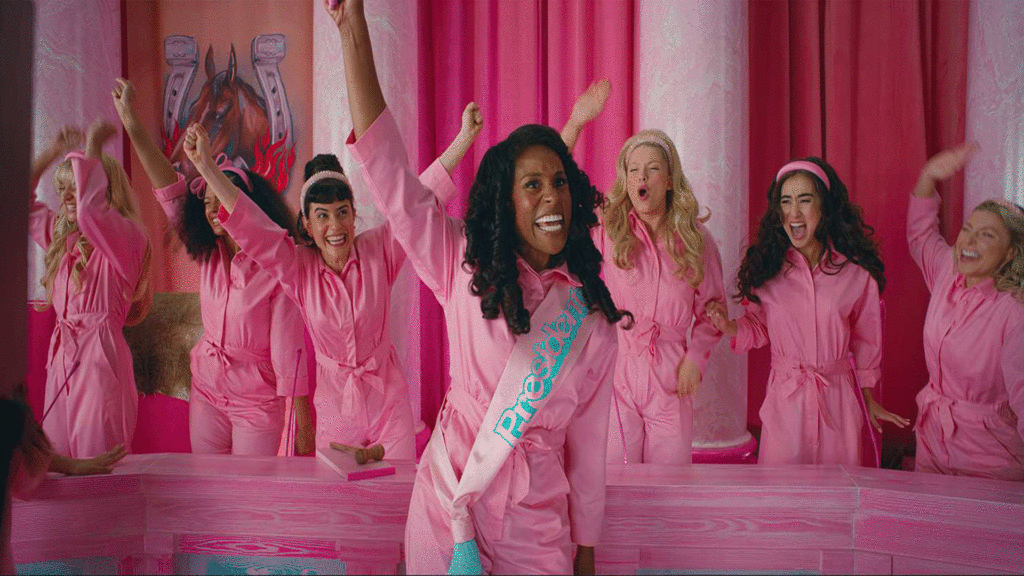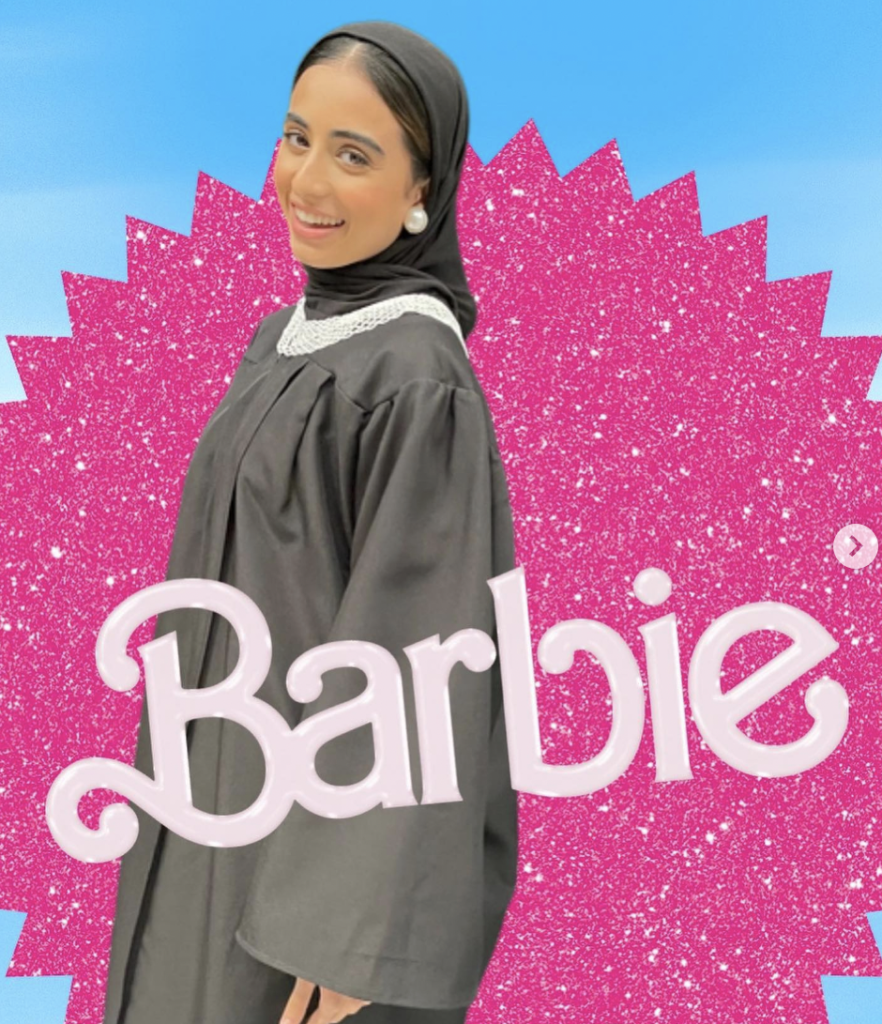Breaking Stereotypes: How the Latest Barbie Movie Celebrates Diversity and Empowers Arab Women

By: Joanna Sawtari / Arab America Contributing Writer
Introduction
Greta Gerwig’s most recent film “Barbie,” spurred dialogue and reflection from moviegoers all over the world, making them question the true meaning of the Barbie doll and its purpose. The exploration of Barbie’s complexity as a character and her relatability to all women served as a platform to shine a light on many important issues from self-discovery to feminism. Each audience member left the theaters with the indelible mark “Barbie” left on them, using the movie as a source of inspiration to freely express themselves. Arab women particularly enjoyed the film as it was the “first time [they] felt represented in cinema” according to Shahd Soutari, a 20-year-old Palestinian college student in Ohio.
Barbie: The Early Years
In the past, the Barbie franchise was critiqued for perpetuating harmful stereotypes about beauty and gender roles. Barbie’s image as a thin, blonde and conventionally beautiful doll set unrealistic beauty standards that negatively impacted the self-esteem of young girls. It arguably implied that women can only be as successful as Barbie is if they’re blonde and attractive, which reinforces the idea that a woman’s worth is determined by her physical appearance rather than her skills or accomplishments. Additionally, Barbie’s traditional role as a homemaker and fashion icon perpetuated gender stereotypes and limited the aspirations of young girls. The doll became known as controversial and was boycotted by many young girls and their families since then.
How has Barbie changed?

Diverse Group of Barbies; Photo: Celebration of Diversity
This film attempts to disprove these claims, opening up the movie with an array of female characters named Barbie, each dressed up for their day-to-day jobs in a short snippet. A voiceover during the scene proudly declares that each Barbie “has her own money, her own house, her own car, her own career” (Barbie 2023). At least one aspect of each of these Barbies resonated with every woman in the audience, whether it was their dream job or ethnic background being portrayed on screen.
Arab women, however, anxiously questioned why their culture was one of the few unrepresented cultures until the final Barbie, played by Khadeejah Khan, appears. “Judge Barbie,” a hijabi female judge who was dressed in her work attire, caused many crowds to erupt in cheers and applause, clearly delighted by her presence. “People in my theater went insane over the scene. There was definitely an overwhelmingly positive reaction from all women in that theater,” said Deema Saad, a Muslim-American who watched the film at a local theater. For the first time within the Barbie franchise, Barbie was a successful hijabi woman- she did not need to be tall and blonde, she could just be herself and still be an emblem of success.

Judge Barbie; Credits: @khxdeejahk on Instagram
The New Purpose
The film highlighted Barbie’s imperfections as she struggled to find her place in a male-dominated world. This led her to question her identity and feel a sense of disconnection from her community. However, by working together with her fellow Barbies, she was able to overcome obstacles and eventually find her true purpose in life.
Through the use of Barbie as a symbol of universal female experiences, Gerwig effectively conveys her message: if Barbie isn’t perfect, then nobody is perfect. Yet “because Barbie can be anything, women can be everything” (Barbie 2023).
Khadeejah Khan who played the hijabi Barbie made a statement that is a real-life example of Gerwig’s message. She said, “when I started modeling, I didn’t ever think I’d be in a movie representing hijabis as a Barbie” (@khadeejahkhan on TikTok). Somehow, she was in the biggest movie of the year, doing something she never thought she could do. If Khadeejah could do it, so can all women.
Tying It All Together
The Barbie movie is a powerful tribute to women and their remarkable achievements and talents. Through its inspiring message, the movie shows that women can overcome societal norms and expectations to pursue their dreams with passion and determination, inspiring future generations to do the same. The movie’s featured track, “What Was I Made For?” by Billie Eilish, perfectly encapsulates these themes, reminding women that they all have a unique purpose in this world that only they can fulfill.
Check out Arab America’s blog here!









